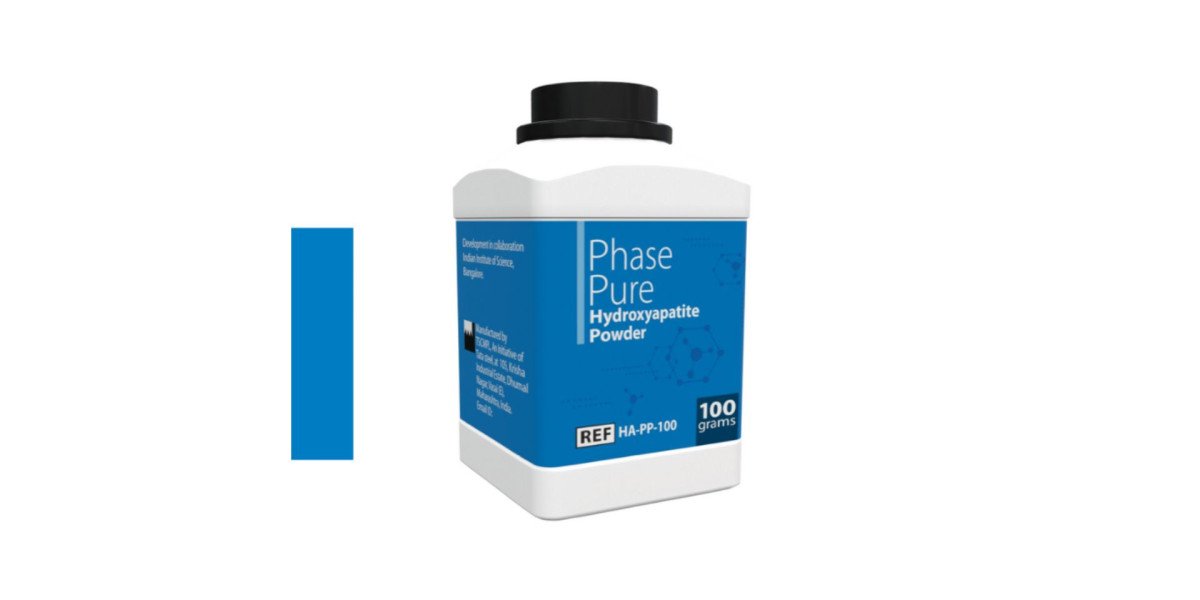Maintaining dental health has always been a priority for individuals who want to ensure a long-lasting, healthy smile. Over the years, fluoride has been hailed as a go-to ingredient for preventing cavities and strengthening enamel. However, hydroxyapatite powder has gained attention as a natural alternative to fluoride, claiming to offer similar benefits without some of the alleged risks. In this article, we will explore both substances in detail, diving into their benefits, differences, and which may be the better choice for your dental health.
What Is Hydroxyapatite Powder?
Hydroxyapatite (HAp) is a naturally occurring mineral that makes up about 97% of our tooth enamel and 70% of our dentin. It is a form of calcium phosphate and plays a critical role in the structural integrity of our teeth. Hydroxyapatite powder is a synthetic version of this mineral and has been used in various medical and dental applications, including bone grafting and dental implants.
When applied to teeth through toothpaste or other dental products, nano-hydroxyapatite (n-HAp) particles fill in the microscopic cracks in the enamel, remineralizing the tooth surface and restoring its smoothness. Unlike fluoride, hydroxyapatite is biocompatible and is often considered safe for both adults and children.
Key Benefits of Hydroxyapatite Powder:
- Remineralization of Teeth: Hydroxyapatite helps to repair the enamel by restoring lost minerals, which can help reduce sensitivity and protect against decay.
- Non-Toxic: Because hydroxyapatite is biocompatible, there are no concerns about toxicity, making it a safer option for young children and individuals who may be sensitive to fluoride.
- Prevention of Plaque: Studies have shown that hydroxyapatite can prevent the accumulation of plaque, which contributes to cavities and gum disease.
- Improves Tooth Sensitivity: The mineral can coat the teeth and fill micro-cracks, which helps to alleviate tooth sensitivity.
What Is Fluoride?
Fluoride is a naturally occurring mineral found in water, soil, and various foods. It is most commonly used in dental care products like toothpaste and mouthwash because of its well-documented ability to prevent cavities and strengthen enamel. Fluoride works by promoting remineralization and creating a fluorapatite layer on the enamel that is more resistant to acid attack from bacteria and food.
Fluoride is also commonly added to public water supplies, a practice known as water fluoridation, which has been credited with a significant reduction in the prevalence of tooth decay in populations worldwide.
Key Benefits of Fluoride:
- Strengthens Enamel: Fluoride helps to rebuild weakened tooth enamel and can reverse early signs of tooth decay.
- Prevents Cavities: It acts as a protective barrier against bacteria and acids that cause cavities, making it a powerful tool in cavity prevention.
- Cost-Effective: Fluoride is readily available and affordable, making it accessible to a wide range of people.
- Widely Researched: Decades of research have proven fluoride’s effectiveness in promoting oral health and reducing cavities.
Hydroxyapatite vs. Fluoride: A Comparative Analysis
Effectiveness in Remineralization
Both hydroxyapatite and fluoride excel in remineralizing teeth, but they operate differently. Fluoride works by converting hydroxyapatite in the enamel into a more acid-resistant fluorapatite, which protects the tooth from demineralization. Hydroxyapatite, on the other hand, works by directly depositing minerals onto the enamel to fill in micro-cracks and strengthen the tooth surface.
Winner: Both substances are effective, but hydroxyapatite offers a more natural and direct method of remineralization by replacing the lost minerals.
Safety and Side Effects
While fluoride is generally safe in controlled amounts, excessive exposure to fluoride can lead to fluorosis, a condition that causes white spots or streaks on the teeth. Fluoride toxicity is a concern, especially for young children who may swallow toothpaste during brushing. Additionally, some individuals are wary of potential health risks associated with long-term fluoride use, including concerns about its impact on thyroid function and bone health.
Hydroxyapatite, being a naturally occurring component of teeth, has no known side effects. It is non-toxic and poses no risk of fluorosis or other health issues, making it an ideal choice for children and individuals with fluoride sensitivity.
Winner: Hydroxyapatite is the safer option, especially for children and individuals sensitive to fluoride.
Prevention of Cavities
Fluoride’s cavity-prevention abilities have been proven through extensive research and practical use. By hardening the enamel and making it more resistant to acid, fluoride creates a barrier against decay. Hydroxyapatite, while also effective in preventing cavities, works differently by filling cracks in the enamel and promoting a smooth tooth surface that is harder for bacteria to cling to.
Winner: Fluoride may have a slight edge here, due to its proven track record and long-standing use in public health initiatives like water fluoridation.
Tooth Sensitivity Relief
Hydroxyapatite is particularly beneficial for individuals suffering from tooth sensitivity. By coating the teeth and filling microscopic cracks, hydroxyapatite can significantly reduce sensitivity, whereas fluoride does not have the same coating effect.
Winner: Hydroxyapatite is more effective at reducing tooth sensitivity.
Which Is Better for Dental Health?
When it comes to choosing between hydroxyapatite and fluoride for dental health, it ultimately depends on your specific needs and preferences. Fluoride has been the gold standard for cavity prevention for decades and is backed by an extensive body of research. It is highly effective in strengthening enamel and reducing cavities, especially in large populations.
However, hydroxyapatite presents a compelling alternative, particularly for those looking for a non-toxic, biocompatible solution. It is equally effective at remineralizing teeth and preventing cavities but without the potential side effects of fluoride. Additionally, hydroxyapatite is superior in reducing tooth sensitivity and is a safer option for young children who may accidentally ingest toothpaste.
For those concerned about the potential risks associated with fluoride, hydroxyapatite powder is an excellent alternative that can provide similar, if not better, benefits for dental health.
Conclusion
In conclusion, both hydroxyapatite powder and fluoride are effective tools for improving dental health, but they cater to slightly different needs. Fluoride remains a reliable and cost-effective solution for preventing cavities and strengthening enamel, while hydroxyapatite offers a more natural and safer alternative with additional benefits, such as reduced tooth sensitivity.
For individuals seeking a natural, biocompatible solution to maintain their dental health, hydroxyapatite is an excellent choice. Meanwhile, fluoride continues to be a proven and affordable option for those looking to reduce their risk of tooth decay.







